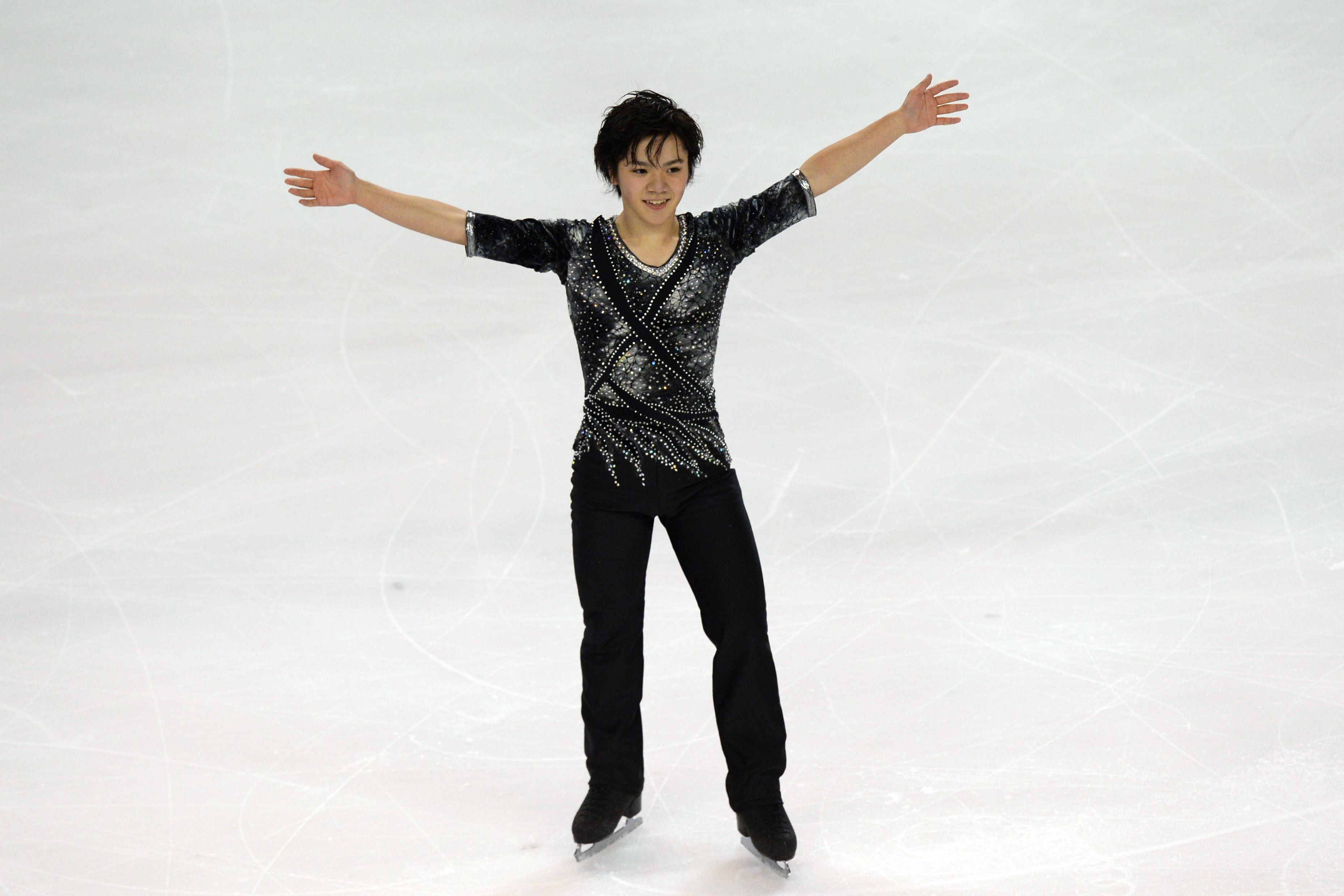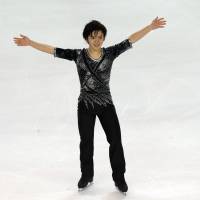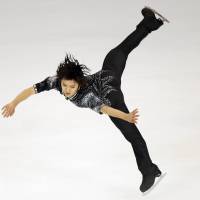The tragic terror attacks that hit Paris on Friday night impacted folks around the globe. The horror of people being cut down in the prime of life is hard to reconcile, but this is the world we now live in.
"Life is unfair," John F. Kennedy once said in a statement that would later prove prophetic.
The skaters, coaches and support staff at the Trophee Bompard in Bordeaux, France, some 584 km away from the French capital would also find this out on Saturday, just an hour before the free skate was to begin.
The ISU and skaters had both voted to continue with the event and have a moment of silence before it started, but the plans changed when the French government declared three days of mourning and banned any public events until Thursday.
There is obviously no comparison to what happened to the innocent victims of the attacks and not being able to continue participating in an athletic event. That does not lessen the disappointment, however, for those who have been training hard for months.
The entire episode is a stark reminder that nothing in life is guaranteed. Some 129 people woke up Friday morning believing it was going to be just another day, when it actually would turn out to be their last.
We think when we put on our shoes and head out the door each morning to work or school that we will be home that evening, but that's not how it works. As the disaster in Tohoku four years ago illustrated, life is unpredictable.
It's hard to prepare for something like a tsunami or terror attack. You can only react and hope you have a chance for survival.
The ISU was to meet on Tuesday to decide what to do about the final standings for the Trophee Bompard. Ice Time believes they will let the short program results stand. This seems the correct course of action.
This would mean that Shoma Uno, who finished second at Skate America, will be the winner and Daisuke Murakami will take third. Uno would be qualified for the Grand Prix Final in Barcelona, Spain, next month, while Murakami will have a shot at making it having also finished third at Skate Canada.
The real question is how to reconcile the disadvantage that those like three-time world champion Patrick Chan and Skate America winner Max Aaron, who both struggled in their short programs and never had the chance to take the ice for their free skates, incurred.
Chan was in fifth place, more than 13 points behind Uno, after the short program, while Aaron was in seventh. With Chan having won Skate Canada and Aaron topping the podium at Skate America, it is logical to think that both skaters had a reasonable chance of challenging for a medal with strong free skates, thereby giving themselves an opportunity to make the field for the prestigious GP Final.
Reigning world champion Elizaveta Tuktamysheva is facing the same scenario after placing second at Skate Canada, but finding herself in fifth after the short program at the Trophee Bompard.
So what should the ISU do to level the playing field for Chan, Aaron, Tuktamysheva and the others affected?
Ice Time thinks it has a good solution.
Expand the field for the GP Final from the standard six skaters to 10 due to the unusual circumstances that dictated the cancellation of the free skate at the Trophee Bompard.
Having 10 skaters in the field should be no problem, as it is actually fewer than the 12 that are generally entered for a regular GP event.
Expanding the GP Final to 10 would help offset the potential points lost by those who were not able to have free skates in Bordeaux and give them the chance to make the roster for Barcelona by lowering the threshold of points necessary to qualify.
We will see what happens when the ISU meets, but keeping the GP Final field at six will certainly create charges of unfairness from those who could be potentially left out.
Lost in the shock of the tragedy that occurred Friday night was the sublime performance of Uno in the short program. The 17-year-old achieved a personal-best score of 89.56 points to "Legends" and was impressive in doing it.
After starting with a big triple axel, Uno saved his quad toe loop for the second half of the program — when it is worth an extra 10 percent — and landed it. He added a nice triple flip/triple toe loop combination and appeared on the way to his first senior GP victory.
Besides winning over the judges and spectators, Uno received effusive praise from the Eurosport2 broadcasters.
"A phenomenal young talent," said Chris Howarth as Uno took the ice. When Uno was finished, Howarth added, "It doesn't look like he's got a nerve in body."
"The way he moves and the attitude he's got," said Nicky Slater, "in the middle of that I just thought, 'This is Elvis on ice.' "
The latter then detailed the key to Uno's success.
"The whole body moving. That's what makes that fluidity, that flexibility," Slater noted. "That's what works with the ice, rather than against the ice. If you're stiff the ice doesn't work with you. If you're just loose and fluid, it works with you."
Straight ahead: The GP series moves to Moscow this week for the Cup of Russia, where Rika Hongo, Yuka Nagai and Riona Kato will represent Japan on the women's side, while Takahiko Kozuka is scheduled to be the Hinomaru's lone male participant.
Hongo, who came in second behind Mao Asada at the Cup of China, will be looking to secure her second straight trip to the GP Final. Hongo finished sixth at last year's GP Final.
Kato and Kozuka will both be skating in their first GP of the season. The 17-year-old Kato has just one GP assignment this season.
Kozuka suffered an ankle injury during practice and was forced to miss the Cup of China earlier this month.





